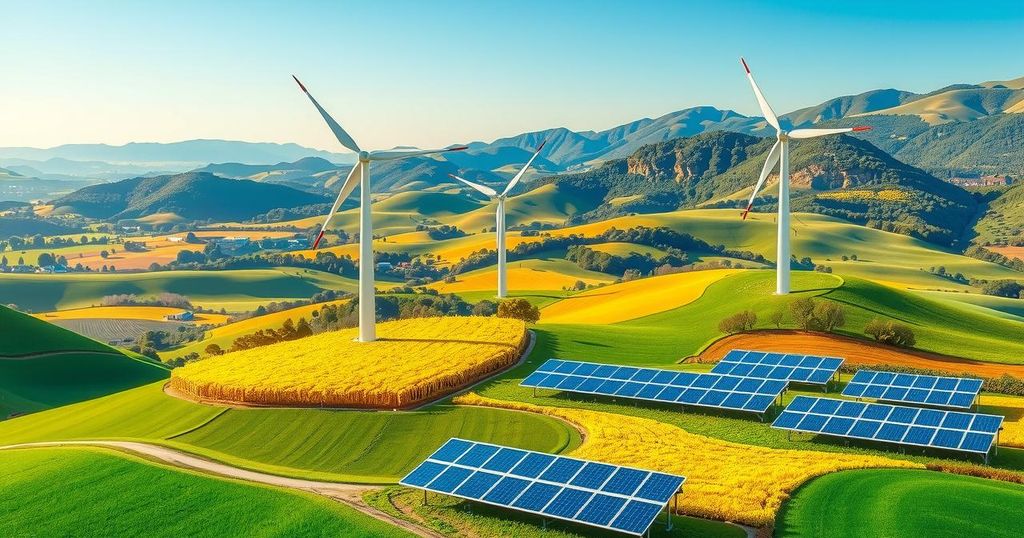Peruvian Farmer Challenges German Energy Giant in Landmark Climate Case
Saul Luciano Lliuya is suing the German energy company RWE in a landmark climate lawsuit due to the risks posed by Palcacocha lake in Peru. Lliuya claims RWE’s carbon emissions contribute to the dangers faced by his community, seeking financial assistance for protective measures. RWE denies liability, arguing climate change is a collective issue. This case marks a significant confrontation between local impacts of climate change and corporate responsibility.
Saul Luciano Lliuya, a 45-year-old Peruvian farmer, is engaged in a landmark climate lawsuit against the German energy company RWE. This case, which began on Monday in a German court, addresses the threat posed by the overflowing Palcacocha lake, fed by rapid glacier melt. Situated over a mile away from Huaraz, where Lliuya resides, this lake contains significantly more water than usual, endangering the lives of Lliuya and an estimated 50,000 residents if it overflows.
Lliuya’s lawsuit is unique as he employs a German property law typically used for local disputes to hold RWE accountable for its contribution to climate change. RWE has accounted for 0.47% of global carbon emissions since its inception in 1898, prompting Lliuya to seek compensation for 0.47% of the approximate $18,000 cost necessary to construct a protective dyke. This case stems from nearly a decade of legal efforts and represents one of nearly 50 worldwide civil claims relating to climate change.
RWE, which has no operations in Peru, denies responsibility, claiming that climate change is a widespread issue involving many different contributors. If the company were to face liability, it could set a precedent that impacts ordinary individuals, as every contributor to carbon emissions could become a potential target for lawsuits. RWE advocates for the resolution of the climate crisis through government actions rather than judicial rulings.
The peril posed by Palcacocha resonates strongly with Huaraz’s residents, especially in light of past disasters such as the 1970 earthquake that resulted in 25,000 fatalities from triggered landslides. Climate change is manifesting ominously in the region, with communities losing water sources and streams becoming toxic from previously covered rocks. Changes in seasonal weather patterns are also complicating agricultural practices, resulting in increased pest populations.
Lliuya expressed the palpable fear surrounding climate change’s impact, noting, “It is scary, the risk from climate change. Even the rivers that pass through the city have risen. There is a lot of fear and the lake’s levels have risen. People are very worried.” Francesca Mascha Klein, a lawyer from Germanwatch assisting Lliuya, emphasized the urgent need for accountability from polluters, stating, “No one should live in fear of losing their home due to the climate crisis. Polluters have to step up and pay the true price of their business model.” The court proceedings are expected to last several weeks and are taking place in Hamm, Germany, near RWE’s headquarters.
In conclusion, Saul Luciano Lliuya’s legal battle against RWE exemplifies the rising confrontations between local communities and large corporations over climate accountability. This lawsuit not only highlights the urgency of addressing climate change but also sets a precedent for future climate-related claims globally. The outcome could determine the balance of responsibility for climate change between powerful entities and vulnerable populations, reaffirming the need for stronger accountability measures.
Original Source: www.wkyufm.org




Post Comment